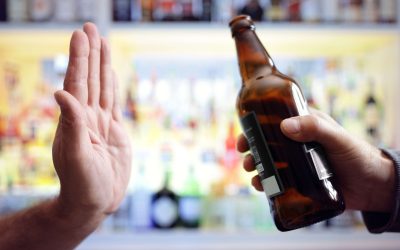Call
-
-
Email
Info@home-quality.be
-
Address
Groenhoek 2 B, 2220 Heist op den Berg
Call
Address
Content
That is, both partners are more likely to misconstrue the other’s behavior, be less able to resolve the situation without anger, and be more likely to engage in dangerous aggression that is likely to result in injury. When offers to help, pleas to stop or slow drinking, and additional interventions with loved ones fail to help moderate behaviors, a spouse may have no choice but to end the relationship or at least separate for a time. It is important to look out for one’s own health and well-being, and that of any children involved, by leaving the situation if all efforts to help are ignored and the negative and harmful behaviors continue. Anyone who is engaging in heavy drinking on a regular basis will be faced with many emotional, physical, and psychological challenges, which tend to be most fully expressed inside of their closest relationships.
Running away from one’s own emotions can also lead to dishonesty within relationships. Furthermore, someone with an alcohol addiction may actively hide things from the people they love. CBT is known for having homework – activities done outside the therapy Top 5 Questions to Ask Yourself When Choosing Sober House session – to address the specific needs of the client. This could be reading something that applies to you or even confronting a problematic individual in your life. While this can be difficult, you will get the most out of therapy by doing this.
Supporting
the Drinker’s Attempts to Change
This is a topic that may continue through future sessions, but which can be
introduced during the brief intervention. As the drinker decides upon a course
of action, you may ask the family to consider ways to support these actions. Peaks Recovery provides accommodating support for individuals who may be experiencing some obstacles in their recovery journey or are looking for a step down from an inpatient program. Interventions such as these would need to involve community figureheads and other key stakeholders in order to make them workable solutions. Population or society-level interventions are different because they are usually brought in through government regulations, and usually involve taxes on alcohol or similar legislation for them to be successfully implemented.
The interview format allows you to probe further and reconcile inconsistencies,
but it may not be an efficient use of limited session time — especially
when multiple family members need to be assessed. Someone with substance use issues often becomes secretive and takes more care to protect their privacy. They may become less talkative or more suspicious when people ask them questions. They may be wary others are trying to get information out of them, and may spend more time alone, choosing not to divulge where they’ve been or what they have been doing.
For example, your spouse might call in sick to work on your behalf, take on extra chores around the house, or work longer hours to raise money for your addiction-related legal expenses. Many people use alcohol to escape from stress, negative emotions, and even heavy workloads. Alcohol acts as a depressant on the brain, slowing down reactions, speech, muscles, and memory – but acts as a stimulant on the reward center, stimulating neurotransmitters that result in feelings of happiness and relaxation. This overstimulation of the reward center results in deep interpersonal changes. In a normal relationship, both members of the relationship seek out stimulation from each other including emotional help and encouragement. Someone who is abusing alcohol is more likely to be emotionally unavailable.

The connection between alcohol, interpersonal violence and codependency is widely documented. Constant conflict or neglect can severely impact children of parents with alcohol addiction. They may experience loneliness, depression, guilt, anxiety, anger issues and an inability to trust others. Alcohol use disorder severely impacts an individual’s personality and, as a result, can make them unrecognizable from the person they were before they started drinking.
As drinking or drug use gets worse, it starts to take more and more time away from the couple, taking its toll by creating an emotional distance between the partners that is difficult to overcome. These couples also report that they fight and argue a great deal, which sometimes can become violent. It is often the fighting itself that can create an environment or situation in which the partner with the drinking or drug problems uses these substances to reduce his or her stress. So, if you or your partner is having a problem with alcohol or other drugs, there is hope. We often think about how drinking can affect our romantic relationships, but may not consider how it affects our friends and family.
Drastic changes in a person’s behavior and personality also highly depend on the quantity and rate of alcohol consumption. A person who is severely dependent on alcohol, for example, may behave erratically and be more prone to violence. From a romantic perspective, alcohol addiction can impair emotional and sexual intimacy. As alcohol takes over someone’s life, other elements that are essential for these types of relationships are put on the back burner. It gets in the way of affection, respect and communication, which are necessary features for a healthy romantic bond.
Alcohol can have a significant negative impact on family relationships, but it doesn’t have to be this way. By understanding how alcohol affects us and our families, we can make better decisions and work towards healthier relationships. If you or your spouse or partner lives with an alcohol addiction, help is available. The Recovery Village Cherry Hill at Cooper provides comprehensive alcohol addiction treatment led by licensed medical professionals to those in the South Jersey and Philadelphia areas. If alcohol has started taking a toll on your relationship, you may have an alcohol use disorder or alcohol addiction, especially if you cannot stop drinking when alcohol is destroying your relationship.
The National Council on Alcoholism and Drug Dependence estimates 28.6 million people are children of alcoholics in the United States. Nurturing healthy and happy relationships is never an easy task, but don’t give up. People with substance use disorders often suffer from depression or low self-esteem, but it’s important to remember that you are worthy of love no matter what mistakes you’ve made previously. Although alcohol abuse can create a multitude of relationship problems, these issues are only temporary.
In severe cases of alcohol addiction, a person may be unable to hold down a job. Common signs include being unable to control your drinking or lacking the ability to stop or reduce your alcohol intake. An alcohol use disorder is also characterized by negative consequences, such as failed or troubled relationships with loved ones. As alcohol use disorder progresses, many people find their friendships are predicated on alcohol.
